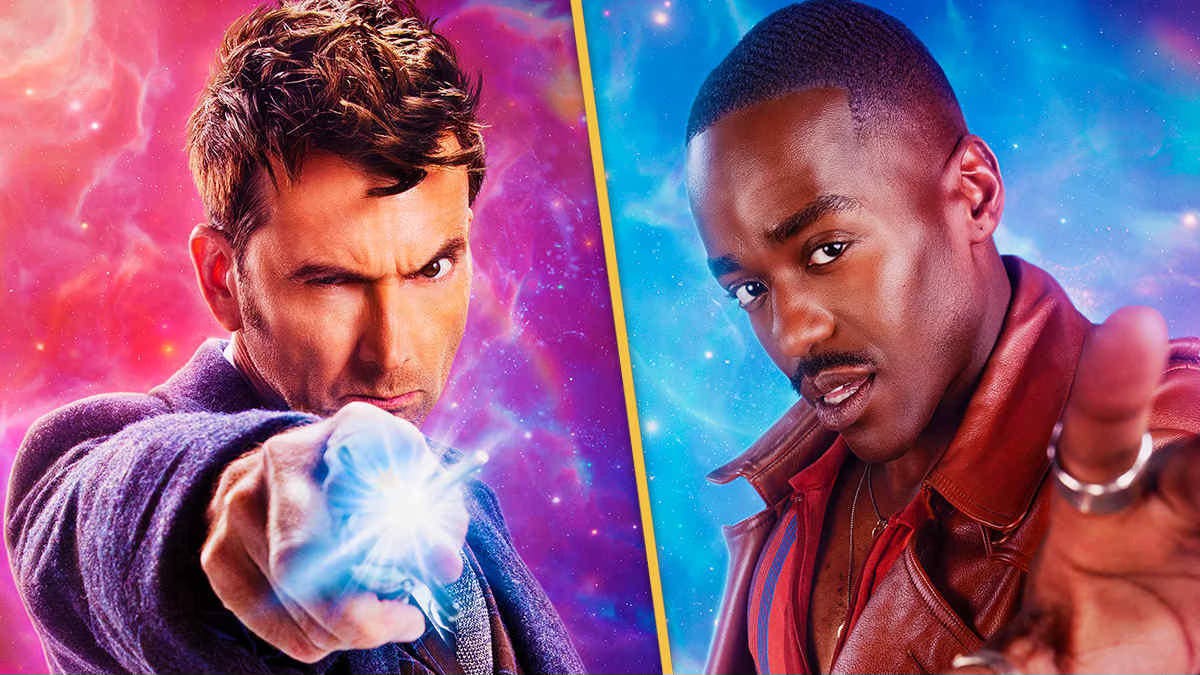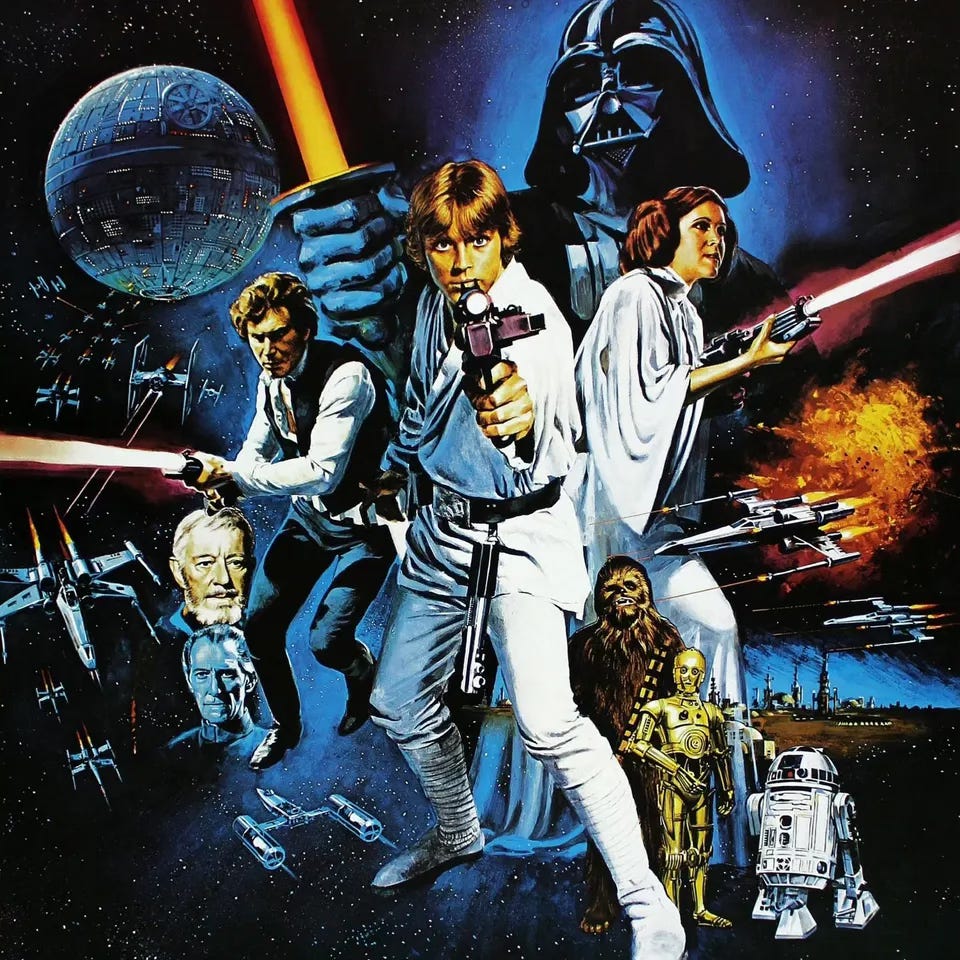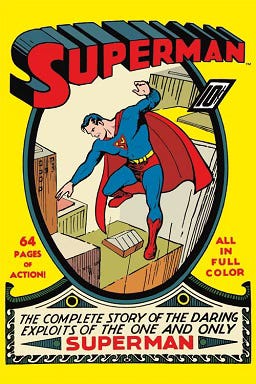What Do Creators Owe Readers (or Media Consumers?)
Hint: It's not your head-canon
Let me get this out of the way early, because I can already feel the collective Internet squinting suspiciously in my direction: Creators owe you the best story they can tell.
That’s it. That’s the whole debt. Not the one you want to hear. Not the one that keeps your head-canon intact, or revives that beloved side character who died three spin-offs ago. Just the best story they’ve got in the tank at the moment, however wild, unexpected, or off-brand it may seem to longtime fans.
Let me explain before you start sharpening your lightsabers.
The Long and Wibbly-Wobbly Road
Let’s talk Doctor Who. It’s the storytelling equivalent of a ship of Theseus. Change a plank here, a personality there, swap one floppy-haired actor for another, and somehow, it’s still the TARDIS bumping its way through space and time. Since 1963, Doctor Who has been a cultural experiment in regeneration — not just of the Doctor, but of tone, pacing, themes, and audience expectations.
Classic Who fans might pine for the slower, more cerebral serials of the ’70s. Modern fans grew up with the kinetic, emotional chaos of the Russell T Davies and Steven Moffat eras. And now? The show’s spinning its next regeneration, with new/old showrunner Russell T Davies (again!) and a shiny new Doctor. Some fans rejoice. Others lament. All of them care deeply. (And yes, I have thoughts, but that’s a topic for another post).
But here’s the rub: Doctor Who is not a static object. It never was. It regenerates. That’s the whole point.
The show doesn’t owe you your favorite version forever. Ten and Rose? Done—-we are not coming back to it. What Doctor Who owes you a story worth telling, even if that means evolving past your preferences.
Star Wars and the Great Target Market Shift
Now, Star Wars.
Oh boy. If Doctor Who is a constantly regenerating Time Lord, Star Wars is your emotionally volatile cousin who shows up to every family reunion with new tattoos, a questionable companion, and a wildly different vibe from last time.
We all remember where we were the day The Last Jedi dropped. For some, it was a masterstroke of storytelling subversion. For others, it was the cinematic equivalent of being told Santa isn’t real… and then being garroted with your own stocking. Opinions were loud, numerous, and often mutually exclusive.
But here’s a thought: what if Star Wars just isn’t for you anymore?
That’s not an insult. That’s not exile. It’s just market reality. Star Wars is no longer a boutique trilogy of space wizards and Joseph Campbell crib notes. It’s a global franchise with Disneyland rides, Saturday morning cartoons, prestige dramas (Andor is right there!), and a target demographic that includes not just you, dear Gen-Xer or Millennial nostalgist, but also your kids… and probably their friends’ pets.
The storytelling has changed not because someone set out to ruin your childhood it’s never personal, but because creators grow, and audiences change. And when you’re juggling billion-dollar expectations, sometimes you pitch the story to where the next generation will be, not where you once were.
And yes, sometimes that leads to stories that don’t land. That’s fair game; but that’s execution; not obligation.
Characters Grow — So Should Creators
This is true across all media. Book series? They evolve too, even if less dramatically. Remember when Harry Potter went from whimsical boarding school hijinks to horcrux hunts and teenage trauma? The author-who-shall-not-be-named didn’t keep the same tone because readers aged up. The story demanded it.
Or take The Lord of the Rings. What started as a whimsical sequel to The Hobbit — a light-hearted children’s adventure — evolved into a sweeping epic of war, sacrifice, and the slow, sad passing of an age. The tone darkened. The stakes grew. Characters who once sang songs and argued over second breakfast found themselves battling ancient evils and facing moral compromises that still resonate decades later.
Did it confuse readers expecting more trolls and treasure maps? Probably. But Tolkien wasn’t interested in repeating himself. He was building a mythology. He followed the story where it wanted to go — even when that meant leaving behind the simpler charm of what came before.
Because that’s what creators do. They don’t stay put. They tell the story that needs to be told.
And that’s where the real tension lies. Sometimes, the story you’ve grown to love grows away from you.
That’s not betrayal. That’s life.
The Myth of the Immutable Canon
For years, I didn’t read Superman because 86 years of history felt overwhelming.
I had gotten paralyzed by canon. How could I truly call myself a nerd if I didn’t know the subtleties of life on Kryton and Mr. Mister Mxyzptlk?
Simple… canon is just not that important.
(I hear the collective gasp and the banging of keyboards in response).
One of the internet’s favorite myths is that canon is sacrosanct — unchanging, unbendable, carved in stone by a writer with a flaming sword and a Netflix deal. But canon is just a snapshot of a moment in a story. It’s provisional. It’s conditional. It’s subject to rewrite, retcon, or — sometimes — glorious contradiction.
And this upsets people. I get it. You invest time, emotion, identity. You argue on forums, you write fanfic, you name your dog K-9. Then a new book, show, or game comes along and smacks your carefully constructed mental temple with a sledgehammer.
But again — the creator doesn’t owe you the continuation of your version. They owe you theirs.
And look, sometimes that version sucks. Creators are human. Franchises stumble. But no one is breaking a covenant because they didn’t deliver precisely the story you had in mind. That’s not a promise they ever made.
A One-Way Ticket to the Past
There’s an understandable nostalgia for the media that shaped us. We want to go back. To when Star Wars was pure adventure, or Doctor Who was dry British weirdness, or book series hadn’t stretched into trilogies-of-trilogies.
But nostalgia is a hell of a drug. It makes you forget that what you loved then was new once, too. It challenged you. It defied expectations. You didn’t love it because it conformed — you loved it because it surprised you, moved you, made you think.
Creators are still trying to do that. Even if they miss sometimes.
So if a story evolves, or a character changes, or a property pivots to speak to someone else — that’s not heresy. That’s creativity doing what it’s always done: growing.
And if it’s no longer for you? That’s okay. There’s more out there. Hell, there’s so much more out there. We’re in a golden age of storytelling across every medium. Find the stories that are for you now.
The Final Bill
So what do creators owe you?
Not your childhood.
Not your version of canon.
Not a rehash of the story you already know by heart.
Just this: the best story they can tell, right now, with the tools and time and vision they’ve got.
That’s the deal. Take it or leave it. But if you take it, take it with open eyes and an open mind.
After all, the next story that surprises you, moves you, and makes you feel ten years old again?
It probably won’t look anything like the last one.
###
Like this? Share it with a reader or writer who appreciates a good moral gray zone—and subscribe for more deep dives into character, storytelling, and the strange, shadowy world between heroes and monsters.
Tony Sarrecchia





Thanks, Tony. Great points, great examples and “voice.”
Though I still hate it when the dog dies. 😏